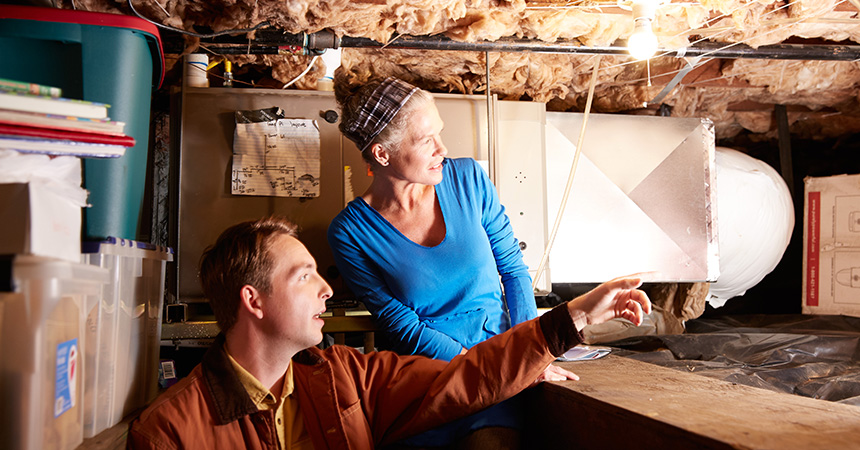
With a long list of new federal tax credits available through the Inflation Reduction Act (IRA) passed in 2022, it can be hard to know where to start. Since tax credits are available through 2032, there’s time to plan your home improvements to maximize your energy and financial savings. This is the second in a series of blog posts on projects that could qualify for IRA benefits.
After weatherizing your home – which includes sealing gaps and cracks and adding insulation – one of the smartest things you can do in your energy-saving journey is scheduling a professional home energy audit or assessment. And there is now a new tax credit to help offset the cost.
Think of a home energy audit as a checkup for your house. An energy auditor or assessor will inspect your home room by room, using specialized tools that monitor temperature and moisture. Afterward, you’ll know how well your home is using energy and where it’s being wasted.
During the inspection, the auditor will:
- Examine the home’s heating and cooling systems, looking for any inefficiencies
- Check for any gaps or other problems in the ductwork
- Review the number and locations of air registers and monitor the temperature in every room
- Check the amount and quality of insulation in the home’s attic and walls
- Look for any potential air leaks near outlets, fixtures, doors, windows and fireplaces
- Assess windows and doors for excess condensation
- Check indoor air quality
- Inspect lighting fixtures and recessed lights
The auditor will also examine your monthly energy bills over the last year and incorporate that data into a detailed report on the characteristics of your home and steps you can take to lower your energy use.
“Every home is different, and everyone uses their spaces differently,” said Scott Leonard, a home energy expert with Energy Trust. “Having an energy audit specific to your home is so valuable because it gives you a roadmap with recommendations you can follow for years to come. And when you make those changes, you’ll find there is likely help out there to lower the costs of those upgrades.”
Energy Trust offers cash incentives for many of the most common recommendations made in home energy audits including solutions for efficient heating and cooling, new windows, installing smart thermostats, adding new insulation, upgrading to a more efficient water heater and many others.
Those cash incentives can also be combined with new home energy federal tax credits created by the Inflation Reduction Act. Depending on the upgrades you make, you can see thousands of dollars in tax credits per year. There is also a $150 tax credit to help offset the cost of qualifying home energy audits.
To qualify for the tax credit, you must use a certified home energy auditor. To find one, check out Energy Trust’s Trade Ally Network made up of contractors around Oregon and Southwest Washington who can help you lower your energy use and take full advantage of Energy Trust’s incentives.
Note: Requirements for federal tax credits and Energy Trust incentives may differ. Energy Trust does not give tax advice. Consult your tax professional for current information on credits available and how to apply.
